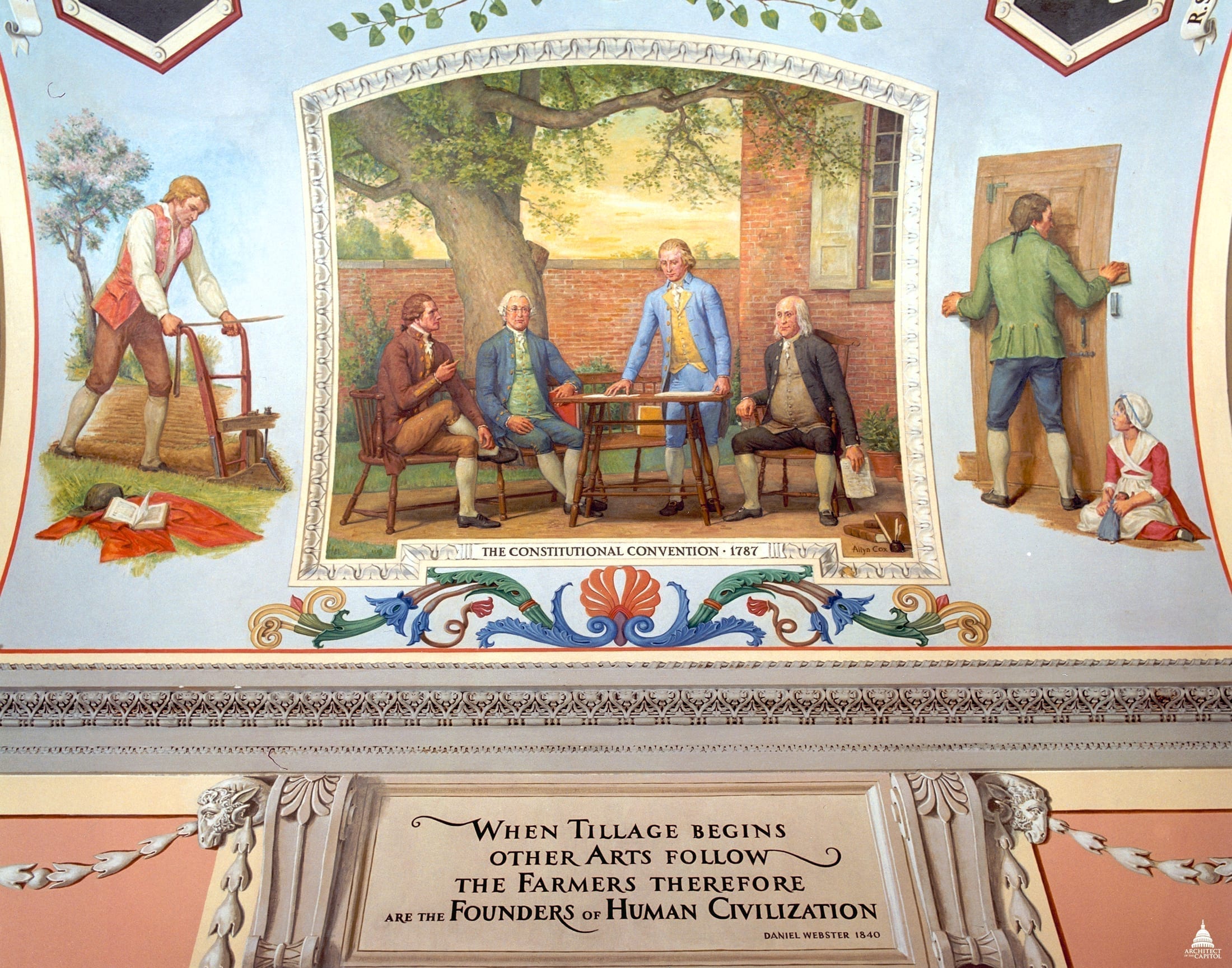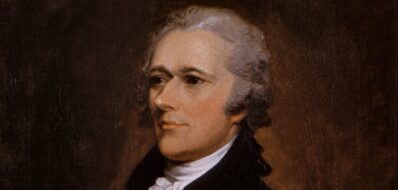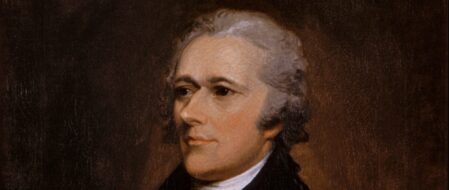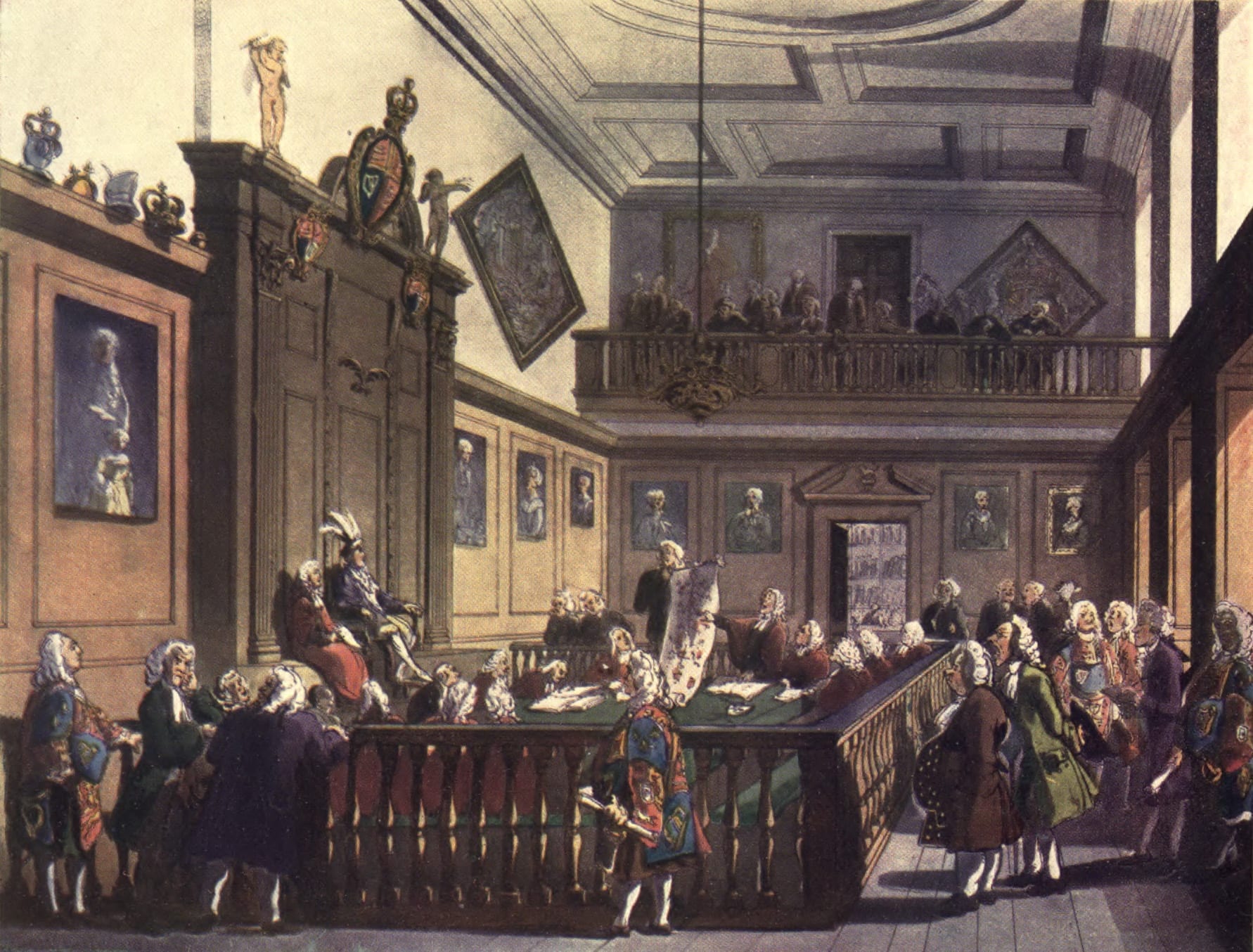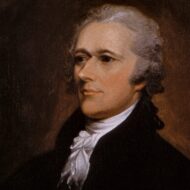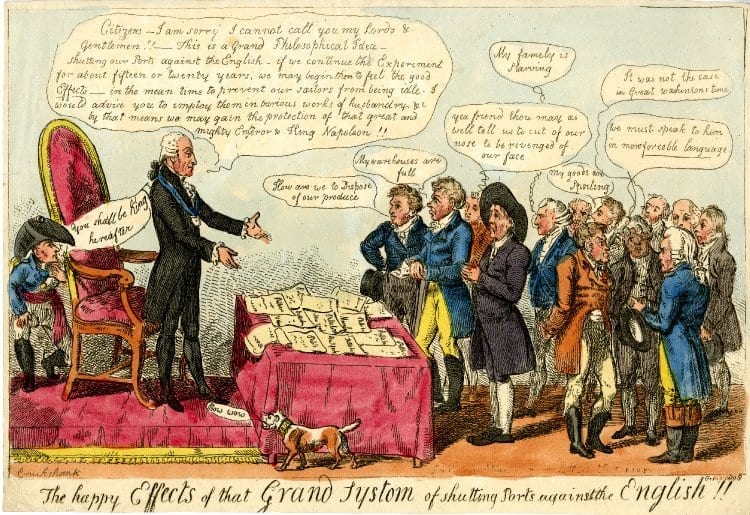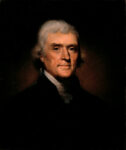
THURSDAY, August 13
The House then resolved itself into a Committee of the Whole, Mr. BOUDINOT in the Chair, and took the amendments under consideration. The first article ran thus: “In the introductory paragraph of the Constitution, before the words ‘We the people,’ add ‘Government being intended for the benefit of the people, and the rightful establishment therof being derived from their authority alone.’”
MR. SHERMAN, — I believe, Mr. Chairman, this is not the proper mode of amending the Constitution. We ought not to interweave our propositions into the work itself, because it will be destructive of the whole fabric. We might as well endeavor to mix brass, iron, and clay, as to incorporate such heterogeneous articles, the one contradictory to the other. Its absurdity will be discovered by comparing it with a law. Would any Legislature endeavor to introduce into a former act a subsequent amendment, and let them stand so connected? When an alteration is made in an act, it is done by way of supplement; the latter act always repealing the former in every specified case of difference.
Besides this, sir, it is questionable whether we have the right to propose amendments in this way. The Constitution is the act of the people, and ought to remain entire. But the amendments will be the act of the State Governments. Again, all the authority we possess is derived from that instrument; if we mean to destroy the whole, and establish a new Constitution, we remove the bases on which we mean to build. For these reasons, I will move to strike out that paragraph and substitute another.
The paragraph proposed was to the following effect:
Resolved, by the Senate and House of Representatives of the United States in Congress assembled, That the following articles be proposed as amendments to the Constitution, and when ratified by three—fourths of the State Legislatures, shall become valid to all intents and purposes, as part of the same.
Under this title, the amendments might come in nearly as stated in the report, only varying the phraseology so as to accommodate them to a supplementary form.
Mr. MADISON.—Form, sir, is always of less importance than the substance; but on this occasion I admit that form is of some consequence, and it will be well for the House to pursue that which, upon reflection, shall appear to be the most eligible. Now it appears to me, that there is a neatness and propriety in incorporating the amendments into the Constitution itself; in that case, the system will remain uniform and entire; it will certainly be more simple when the amendments are interwoven into those parts to which they naturally belong, than it will if they consist of separate and distinct parts. We shall then be able to determine its meaning without references or comparison; whereas, if they are supplementary, its meaning can only be ascertained by a comparison of the two instruments, which will be a very considerable embarrassment. It will be difficult to ascertain to what parts of the instrument the amendments particularly refer; they will create unfavorable comparisons; whereas, if they are placed upon the footing here proposed, they will stand upon as good foundation as the original work. Nor is it so uncommon a thing as gentlemen suppose; systematic men frequently take up the whole law, and, with its amendments and alterations, reduce it into one act. I am not, however, very solicitous about the form, provided the business is but well completed.
[Smith, Livermore, Vining, Clymer, Stone, Gerry, Benson, Hartley, Page, and Jackson discuss the relative merits of the two “forms” of amending the Constitution.]
Mr. SHERMAN.—If I had looked upon this question as a mere matter of form, I should not have brought it forward, or troubled the committee with such a lengthy discussion. But, sir, I contend that amendments made in the way proposed by the committee are void. No gentleman ever knew an addition and alteration introduced into an existing law, and that any part of such law was left in force; but if it was improved or altered by a supplemental act, the original retained all its validity and importance, in every case where the two were not incompatible. But if these observations alone should be thought insufficient to support my motion, I would desire gentlemen to consider the authorities upon which the two Constitutions are to stand. The original was established by the people at large, by conventions chosen by them for the express purpose. The preamble to the Constitution declares the act; but will it be a truth in ratifying the next Constitution, which is to be done perhaps by the State Legislatures, and not conventions chosen for the purpose? Will gentlemen say it is “We the people” in this case? Certainly they cannot; for, by the present Constitution, we, nor all the Legislatures in the Union together, do not possess the power of repealing it. All that is granted us by the 5th article is, that whenever we shall think it necessary, we may propose amendments to the Constitution; not that we may propose to repeal the old, and substitute a new one.
Gentlemen say, it would be convenient to have it in one instrument, that people might see the whole at once; for my part, I view no difficulty on this point. The amendments reported are a declaration of rights; the people are secure in them, whether we declare them or not; the last amendment but one provides that the three branches of Government shall each exercise its own rights. This is well secured already; and, in short, I do not see that they lessen the force of any articles in the Constitution; if so, there can be little more difficulty in comprehending them whether they are combined in one, or stand distinct instruments.
[Smith, Seney, Vining, Gerry continue to discuss which mode of amending the Constitution should be adopted.]
Mr. SHERMAN.—The gentlemen who oppose the motion say we contend for matter of form; they think it nothing more. Now we say we contend for substance, and therefore cannot agree to amendments in this way. If they are so desirous of having the business completed, they had better sacrifice what they consider but a matter of indifference to gentlemen, to go more unanimously along with them in altering the Constitution. The question on Mr. SHERMAN’S motion was now put and lost.
FRIDAY, August 14
[Representatives Smith, Gerry, Tucker, Sumter, Livermore, and Page discuss the merits of the Select Committee’s first amendment proposal that “Government being intended for the benefit of the people, and the rightful establishment therof being derived from their authority alone,” be included in the introductory paragraph.]
Mr. MADISON.—If it be a truth, and so self—evident that it cannot be denied—if it be recognized, as is the fact in many of the State Constitutions—and if it be desired by three important States to be added to this—I think they must collectively offer a strong inducement to the mind desirous of promoting harmony to acquiesce with the report; at least some strong arguments should be brought forward to show the reason why it is improper.
My worthy colleague says the original expression is neat and simple; that loading it with more words may destroy the beauty of the sentence; and others say it is unnecessary, as the paragraph is complete without it. Be it so in their opinion; yet still it appears important in the estimation of three States that this solemn truth should be inserted in the Constitution. For my part, sir, I do not think the association of ideas anywise unnatural; it reads very well in this place; so much so, that I think gentlemen, who admit it should come in somewhere else, will be puzzled to find a better place.
Mr. SHERMAN thought they ought not to come in this place. The people of the United States have given their reasons for doing a certain act. Here we propose to come in and give them a right to do what they did on motives which appeared to them sufficient to warrant their determination; to let them know that they had a right to exercise a natural and inherent privilege, which they have asserted in a solemn ordination and establishment of the Constitution.
Now, if this right is indefeasible, and the people have recognized it in practice, the truth is better asserted than it can be by any words whatever. The words “We the people,” in the original Constitution, are as copious and expressive as possible; any addition will only drag out the sentence without illuminating it; for these reasons it may be hoped the committee will reject the proposed amendment.
The question on the first paragraph of the report was put and carried in the affirmative, twenty—seven to twenty—three.
WEDNESDAY, August 19
[The Representatives concluded their consideration of the Select Committee report and defeated attempts by Gerry and tucker to broaden the scope of the amendments to include the structure and powers of the federal government.]
Mr. SHERMAN renewed his motion for adding the amendments to the Constitution by way of supplement.
Hereupon, ensued a debate similar to what took place in the Committee of the Whole, [see THURSDAY, August 13, above] but, on the question, Mr. SHERMAN’S motion was carried by two—thirds of the House; in consequence it was agreed to.
The first proposition of amendment [see FRIDAY, August 14, above] was rejected, because two—thirds of the members present did not support it.
[The House, as the last order of business on Saturday, August 22, directed Representatives Benson, Sherman, and Sedgwick “to arrange” the agreed upon amendments “and make a report thereof.”]
MONDAY, August 24
Mr. BENSON, from the committee appointed for the purpose, reported an arrangement of the articles of amendment to the Constitution of the United States, as agreed to by the House on Friday last.

Conversation-based seminars for collegial PD, one-day and multi-day seminars, graduate credit seminars (MA degree), online and in-person.






